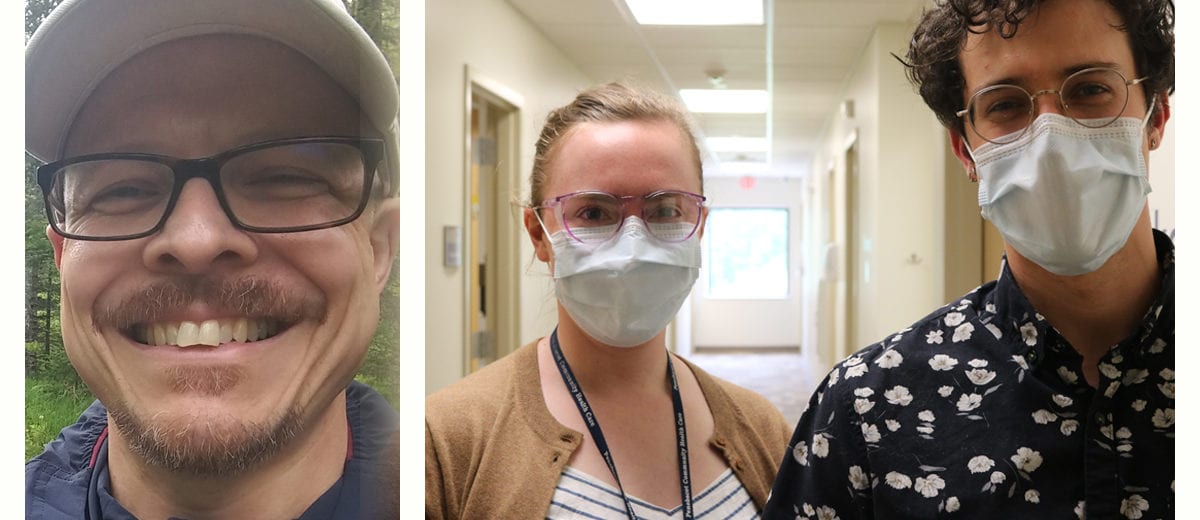Brewer Providers Teaching Culturally Competent Care
Pride Month, wrapping up this week, can be a lighthearted festival, complete with rainbow flags, sassy memes and rowdy parades. It’s also an important and visible reminder of progress toward equality—and the distance still to be covered in treating all people equally. A small group of PCHC providers are quietly working on ways to make healthcare more accessible, welcoming and inclusive for their LGBTQIA+ patients. Knowing that one in four LGBTQIA folks have reported discrimination in health care—leading many people to avoid accessing care — this team also wants to get all healthcare workers—from providers to medical assistants to call-center workers—to learn more about culturally competent care.
What does that look like?
For Nathan McKnight, LCSW, it means “being attentive to themes and narratives that may not be the initial reason (a person seeking therapy) might come in, but it’s important to understand the whole person.”
For Ellen Taraschi, FNP-C, WHNP-BC, “we want to prepare our clinics to be places where people can come as they are.”
For Cameron Goller, FNP-C, it looks like “making it easier in the medical record and from the minute you come in to address you by the name you prefer. To be sensitive to all your concerns, whatever they may be. “
Some of the areas of concern for the Brewer team include:
• The electronic medical record should expand allowance for preferred names
• All staff with patient facing duties—from PSRs to MAs—should be offered opportunities to learn culturally competent practices.
• Providers should be sensitive to the need for gender-affirming care
Culturally competent care “looks pretty much like ordinary old care which is good,” Taraschi said. “You make the person feel comfortable—a level of trust has to be fully established from the moment they come into the clinic.”
Taraschi noted that providers need to be aware of sensitivities around gender-confirming hormone therapy, for example, or provision of care typically assigned to one gender or another. This sensitive approach can benefit providers, too.
“I had one patient come in recently to discuss (hormones) and they were so excited, and their partner was with them and they were so happy. I was happy for them,” she said. “And I thought, I could do this all day—it makes me feel so good (to make this patient comfortable).”
The Brewer team suggests that the emphasis should be on providing excellent health care, but that care needs to be informed by awareness and respect of individual traits and sensitivities—including sexuality and gender (along with age, life circumstances, and patient preferences). Those aspects may or may not be part of the reason a patient seeks care.
“I’m seeing a lot more non-binary individuals,” McKnight said. “People who are exploring issues of gender concepts and presentations. The other thing I’m seeing as well, especially with COVID, is people dealing with depression and anxiety, systemic life issues—who might also happen to be trans. That’s not the primary issue, but it’s part of their life. I try to approach counseling with a holistic perspective, I want to understand the whole person.”
No formal program to address cultural competence has been launched, but the Brewer team hopes that their approach can be adopted organization-wide and supported by training and engagement events in PCHC practices. Meanwhile, they want all patients to know they will be treated with care and sensitivity.
“We would like to let people know that we are trying to provide that gender-affirming care,” Goller said.
